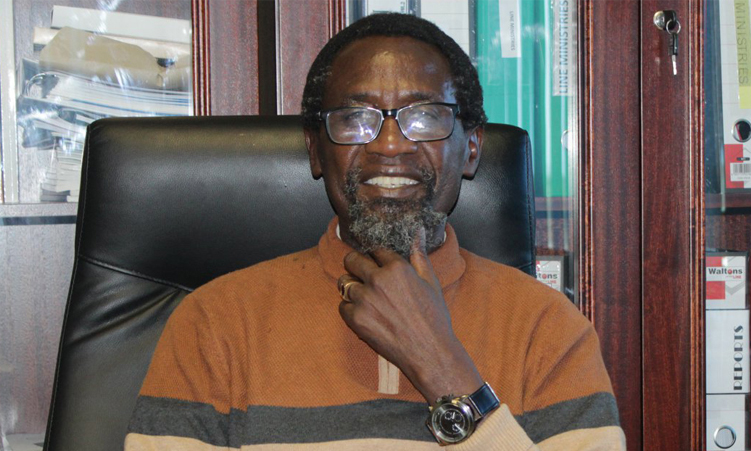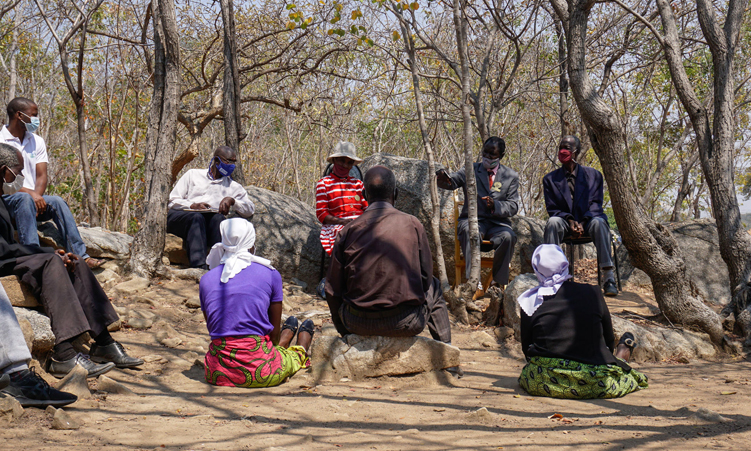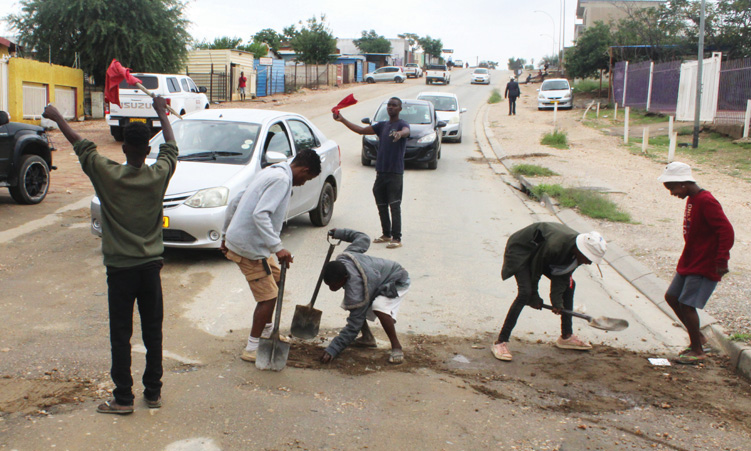… Traditional courts revise penalties
People convicted of rape in northern traditional authorities will be fined of N$7500 or three head of cattle at the traditional courts.
This comes after eight traditional authorities revised their penalty structure for various offences, including a significant increase in fines for rape and murder.
In the past a rapist was fined N$3 000 or two head of cattle.
The new fines, which took effect on 1 March 2023, see rape offenders facing a fine of N$7 500 or three head of cattle. This represents a substantial increase from the previous penalty.
The revised penalties are effective in the of the Uukwaluudhi, Uukolonkadhi, Ongandjera, Ombalantu, Ombadja, Uukwambi, Oukwanyama and Ondonga traditional authorities.
They cite Section 14(b) of the Traditional Authorities Act of 2000 as the legal basis for implementing these fines.
Under the revised structure, murder now carries a fine of N$25 000 or 10 head of cattle. In the past, the same crime used to carry a fine of N$15 000 or ten cattle.
However, the deceased’s family will receive only nine cows or N$22 500, with the remaining cow or N$2 500 going to the traditional authority.
The revisions also address other offences. Those convicted of inflicting permanent disabilities face a fine of N$12 500, while breaking someone’s teeth or inflicting head injuries carries a fine of N$2 500. Impregnating a woman without her consent is now punishable by a N$5 000 fine or two cows. Impregnating a person with intellectual disabilities, or raping a minor, or schoolgirl, is N$7 500 or three cows.

A man who commits adultery pays N$7 500 or three cows, while a woman who commits adultery pays N$2 500. Insulting another person from head to navel is fined N$150, while insulting them from navel to the feet, the fine is N$250.
Ondonga Traditional Authority secretary Frans Enkali told The Namibian yesterday the fines were deliberated on in 2014, but were only formalised last year.
He said those in offices did not make the necessary changes for the revised penalties to be regarded as law.
“They were just in the form of minutes. You cannot charge the person by minutes, you charge the person by law,” Enkali said.
Enkali added that a person is fined when they are convicted in a civil court.
“If the person has already been convicted by a competent court, there is nothing to hear about, only to say if that has happened and the person was found guilty by a court of law, traditionally they have to pay what is due to that family,” Enkali said.
He added that if a person fails to pay the fine, the traditional authority writes to the justice ministry or magistrate’s court to provide a court order for the offender to be arrested by the police.
“There is no vacuum, only that sometimes people don’t understand that we don’t work in isolation,” Enkali said.
“We cannot charge offenders a lot of money because most of them are young people who are unable to pay and they end up being assisted by their parents,” Iipumbu said.
In 2022, justice minister Yvonne Dausab defended the legality of fines imposed by traditional authorities. She said such measures exist to “wipe off tears” of the victims and their families.
At the time, the minister told The Namibian that the fines are in line with the aim of restoring social peace and harmony in communities.
Dausab said the absence of a compensatory process in state courts normally leaves a gap, whereas at the level of the community court, access is free.

“This means the injured party or family is not satisfied with a criminal process that only punishes the offender without any compensation to the injured person,” Dausab said.
The minister, however, warned traditional authorities not to be too strict with the fines.
“Traditional leaders are expected not only to promote peace and the welfare of the people, but also assist the Namibian Police with crime prevention and investigation, in line with the Criminal Procedure Act.”
She said community members in the rural areas governed by customary laws can opt to have their matters adjudicated both through customary law and national laws.
Dausab further said having matters adjudicated in both state and community courts is not double jeopardy, because in ordinary courts there is also provision for civil (compensation) and criminal proceedings.
“A person can, therefore, be punished for the crime committed and be required to restore the person in the position they were before the offence,” Dausab added.
She noted that community courts are not authorised to replace the role of the police and the prosecutor general when it comes to the commission of serious crimes against society, such as statutory rape and murder.

Lawyer Kadhila Amoomo says article 66 of the Constitution states that both customary law and common law in Namibia in force on the date of independence remain valid as long as they are not in conflict with the Constitution or any other statutory law.
“Customary fines should therefore be seen in this context. Until they are set aside by a court of law, they remain binding on those who regard themselves as members of a specific traditional authority,” he says.
Amoomo says traditional authorities have significantly improved regarding the protection of human rights.
“This can be observed in how women and children enjoy rights they were previously denied. It is also important to point out that the fines are not final,” he says.
Amoomo says an individual would still be punished in terms of the law and serve imprisonment if found guilty by the courts.
“This means there is a possibility of double punishment if the fines are regarded as punitive. This would, however, have to be challenged by anyone who feels aggrieved,” he says.
Human rights activist Rosa Namises has slammed traditional authorities for their leniency in dealing with rape cases.
Namises asks why traditional courts hold so much power when it comes to punishing rapists, particularly with sanctions as light as N$25 000 fines.
She criticises the practice of offering cattle as compensation for rape, saying the trauma inflicted on survivors lasts a lifetime.
Namises calls for a tougher stance, urging traditional courts to work alongside the official justice system.
She advocates harsher punishment alongside traditional education for offenders.
“The traditional authority should say such men, while in prison, should be taught what the traditional beliefs are,” Namises said.
Stay informed with The Namibian – your source for credible journalism. Get in-depth reporting and opinions for
only N$85 a month. Invest in journalism, invest in democracy –
Subscribe Now!










